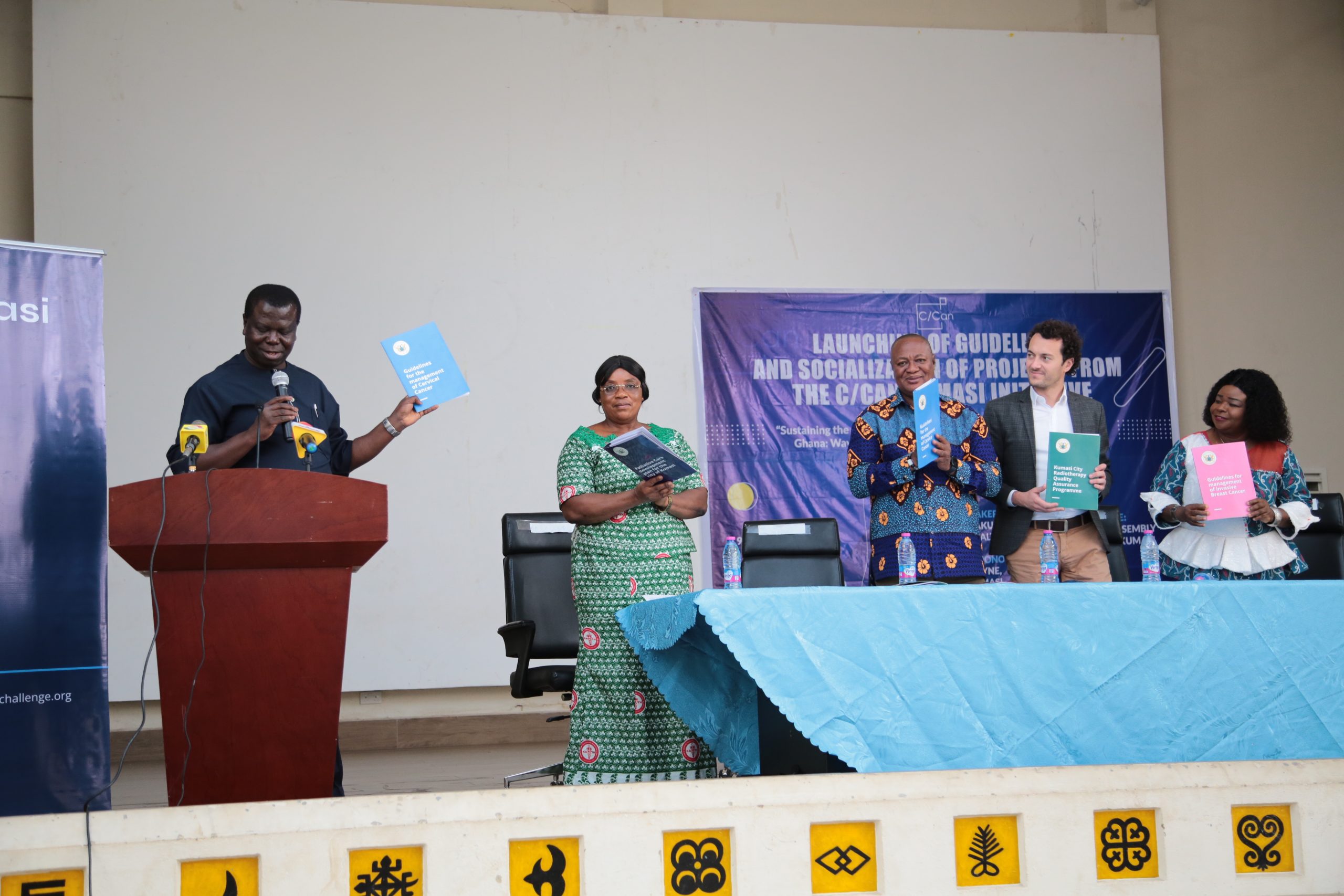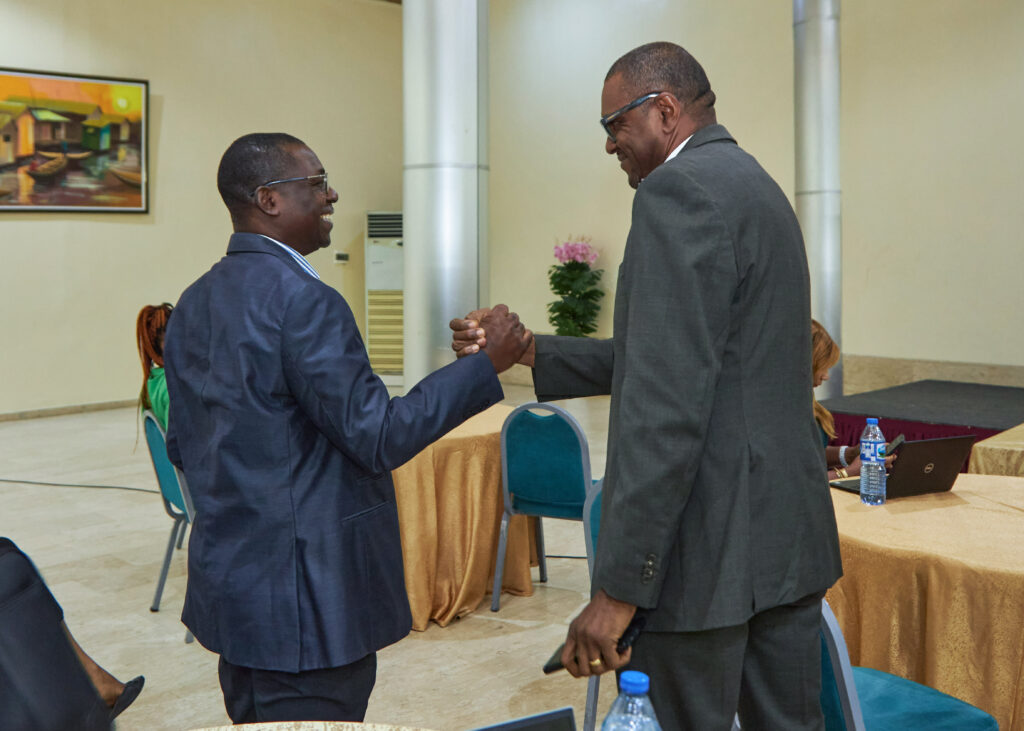
- The projects were co-created through the C/Can model since 2018 with over 256 local health professionals, 53 patients and 32 Ghanaian institutions
- Local solutions to address prioritised needs have been endorsed by the Ministry of Health of Ghana who will look to replicate the care solutions in other parts of the country.
The city of Kumasi has launched seven cancer care solutions that are ready to be implemented in and beyond the city. It’s expected that Kumasi’s four million inhabitants and the wider Ashanti region will benefit from improved quality and access to cancer care.
Special Advisor to the Minister of Health for Ghana, Dr Baffour Awuah and the Mayor of Kumasi Hon. Samuel Pyne launched the projects at an event on Friday 9 December. The Ministry of Health of Ghana will look to replicate the care solutions in other parts of the country.
Sophie Bussmann-Kemdjo, Director Africa & Europe for C/Can said “I am impressed with the commitment and willingness of Kumasi’s health stakeholders. Together they have developed and began implementing solutions to advance cancer care that can be scaled across the whole country. It’s fascinating to see the power of city-led initiatives that then have impact beyond the city.”
Kumasi has been part of the City Cancer Challenge Foundation (C/Can) initiative since 2018, and has co-created projects with over 256 local health professionals, 53 patients and 32 Ghanaian institutions.
Seven cancer care solutions
One of the solutions developed is the creation of guidelines for the management of breast and cervical cancers. The Ministry of Health Ghana approved the guidelines as national documents, to be used across all health institutions. According to Globocan, breast and cervical cancers are two leading causes of cancer deaths in the country.
Hon. Samuel Pyne, Mayor of Kumasi and Chair of the Kumasi C/Can City Executive Committee said “the guidelines developed with the help of C/Can are resources for the Ministry of Health, donors and the international community to implement in our city and across Ghana. It is my expectation that all health institutions will benefit by using these most valuable guidelines.”
Another solution, the cancer imaging project, has involved the acquisition of a SPECT CT machine with the support of German development agency GIZ (Deutsche Gesellschaft für Internationale Zusammenarbeit). Patients from catchment areas of the greater Kumasi region will benefit from this machine designed for earlier cancer diagnosis. This includes patients referred to the Komfo Anokye Teaching Hospital (KATH) from neighbouring countries such as Burkina Faso and Togo. Five Kumasi hospitals also received microscopes for their laboratories with funds from GIZ.
Development plans were also produced for a radiotherapy programme and palliative care measures that are awaiting funds for execution.
A City Executive Committee has led the process for four years with C/Can’s support, that includes the Ministry of Health for Ghana, the Director General of the Ghana Health Service, the Manhyia Traditional Authority, the Ashanti Regional Minister, the Metropolitan Chief Executive (MCE) of Kumasi, hospital CEOs from the private and public sector and representatives from cancer patient survivor groups.
Highlights from the C/Can initiative in Kumasi:
- Enhancing the cancer registry with equipment provision for effective data input.
- The production of guidelines for the management of breast and cervical cancers.
- Laboratory Development Plans for the city of Kumasi and a Quality Control Manual to improve the testing of specimens and early diagnosis.
- The acquisition of a SPECT CT machine and microscopes for five Kumasi laboratories with the support of German development agency GIZ (Deutsche Gesellschaft für Internationale Zusammenarbeit).
- A nuclear medicine development plan.
- Standard Operating Procedures for Breast cancer.
- A quality assurance programme for radiology.
- Minimum operating requirements for medical oncology services in the city.
- An essential medicine list for paediatric and adult cancers.
- A palliative care development plan.
- A training programme for cancer surgeon specialists to attend training outside of Ghana.
- A radiotherapy development plan and a quality assurance programme for radiotherapy.





